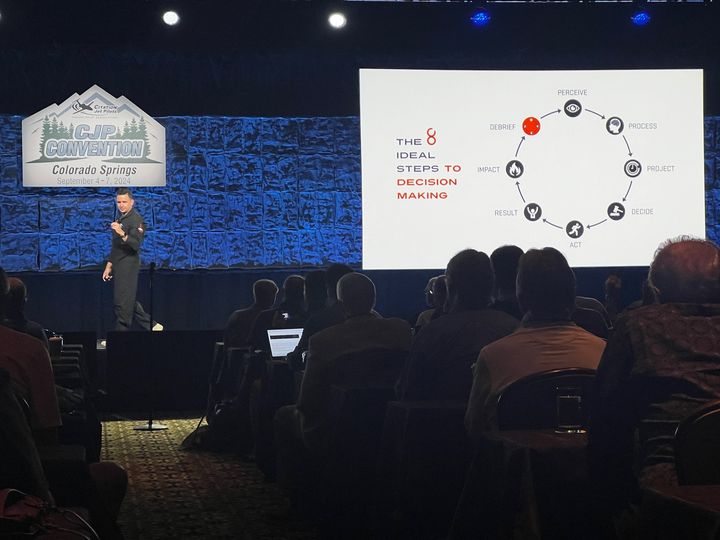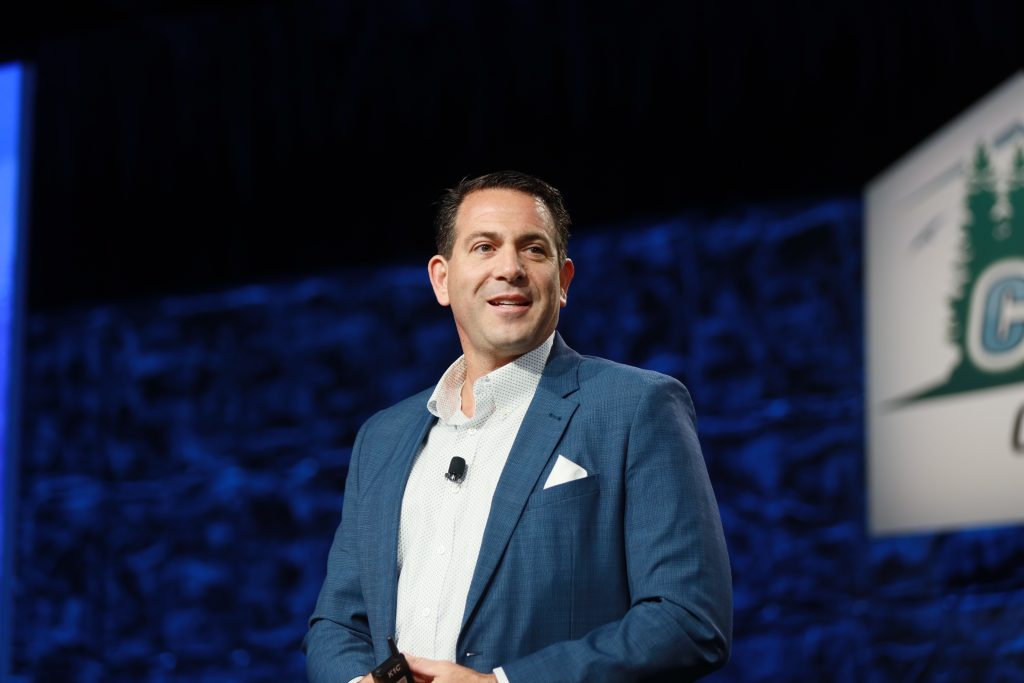The final day of the 2024 CJP Convention was packed with exciting and informative content, all with a targeted focus on safety. And what better way to drill that message home than in a keynote speech by not one, but two former fighter pilots?

“Whether you’re flying a single pilot fighter jet or a single pilot Citation, how many people are accountable for the safety of that flight?” asked Christian “Boo” Boucousis in his keynote presentation, ‘Afterburner” Fighter Pilot/Single Pilot Mindset.’ “How many accountable people are there with you? No matter what happens in that airplane, fundamentally it comes back to you.”
Boucousis, who served in the Royal Australian Air Force and is now CEO of global human and organizational performance company Afterburner, emphasized the importance of proper decision making and mastery of self at all times.
“The fighter pilot mindset is having the maturity and the situational awareness to break the chain of events that leads to an accident or a threat,” he said, which begins with acknowledging a hard truth: “Part of becoming a fighter pilot is learning that in that cockpit, the weakest link is not the avionics, the engine or the airframe. It’s the soft, fleshy thing manipulating the flight controls.”
In addition to strict adherence to training and debriefing every flight to identify areas for improvement, Boucousis also emphasized the importance of a “wingman” in maintaining situational awareness. “It is humanly impossible to think and act at the same time,” he said. “You’re talking about two different brain structures switching between the two modes. We can’t multitask, and we can’t ‘multithink.’ So, what we create is this environment where one pilot is the leader, because they’re busy trying to figure out what’s going on right now, and the wingman sitting back there keeping an eye on the big picture.”
That’s a concept that can even translate into single pilot operations. “Who’s a wingman in your environment when all of a sudden you notice that you’re overwhelmed?” he asked. “How about air traffic control? Your significant other or another person sitting in the cockpit? What other resources do we have? How about the autopilot?
“Look at us,” Boucousis continued. “We have a qualification, the tribe that we’re in, the aircraft that we fly. We create a culture, a culture of excellence in which we all hold each other accountable. When I look at CJP and I look at this room, I see a culture of wingmen – of people who have a combined, shared story that enhances their lives and the capabilities of the person next to them.”
He also presented an example of what can happen when that process breaks down, citing the 1972 loss of Eastern Airlines Flight 401. The L-1011 airliner crashed into the Florida Everglades as the three-person cockpit crew obsessed over the cause of a failed nose gear-down indicator light. All three were among the 101 fatalities in that accident; 75 survived.
That flight crew put the aircraft on autopilot at 2,000′ MSL as they tried to determine if the gear was actually inop. However, things took a fatal turn when the first officer leaned against the yoke as he moved to examine the indicator light.

“So, the autopilot says to itself, ‘hey, I think the stupid human wants to fly,’” added CJP CEO Rob “Balz” Balzano, himself a former F-16 fighter pilot. “He pushed on the control wheel with more than five pounds of pressure. And you all know that the rate at which you push forward on the control wheel is directly proportional to the rate in which the houses get bigger in the windscreen.”
Eastern 401 serves as an important example that multi crew operations carry their own risks. However, the potential for such mistakes is even higher in a single-pilot environment.
Even as technology enables pilots to become more fully integrated with their aircraft to perform safe single-pilot operations, “I still must remember to give myself time to think, to act and to examine,” Boucousis said. “I must always be prepared for the unexpected.”